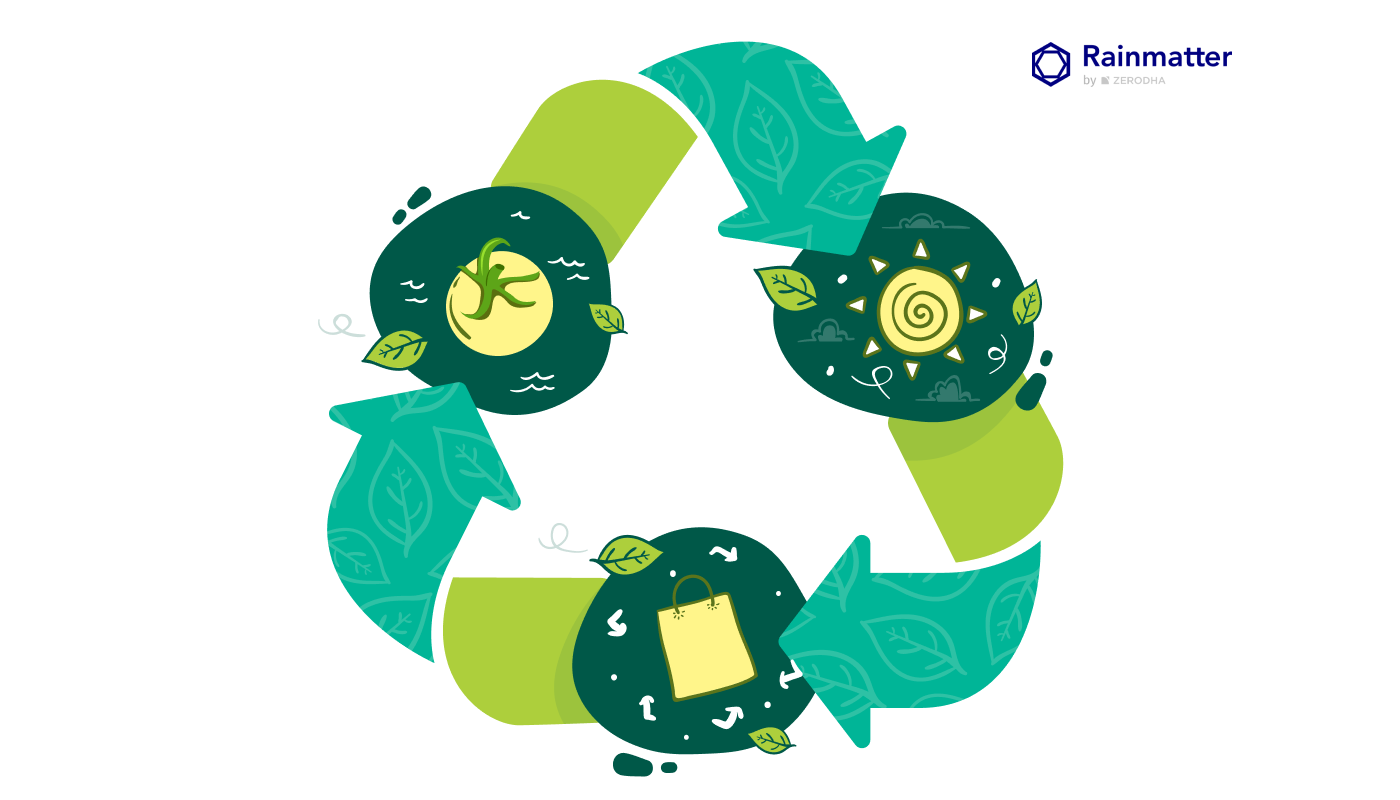
Raheja Solar: Transforming food waste into farmer entrepreneurship
Food waste is a huge problem. The methane released from rotting food is one of the major contributors to the carbon footprint of agriculture. Then there is the carbon footprint from the resources used to grow the food. If you think this is a developed market problem, it’s not – India also loses one-third of the food grown though for different reasons. India suffers from ‘food loss’ which is during the growing, harvesting, and distribution phase, while the developed countries have more ‘food waste’ which is at the consumer level. The irony is that only a few decades ago, we didn’t have enough food. And that we also have malnutrition and farmer distress even today.
While it’s complex to reform the whole agricultural system, one that has been distorted through subsidies, support prices, GMOs, etc, there are some low-hanging fruit solutions. The tomatoes being dumped on the roadside can be saved while helping the farmers and the climate.
Our guest in the latest episode of the climate conversations has one such solution – a portable, solar-powered dehydrator.
Food loss is a market failure
According to a study backed by the government, in 2022 India lost about 5–13% of its fruits and vegetables and 3–7% of other crops including oil seeds and spices between harvesting and consumption. If we were to give it a number, it’s a problem worth over ₹1,52,000 crores!
Irradiation is a process where food is passed through gamma radiation to destroy bacterial microbes. This delays spoilage and ripening, preventing sprouting and increasing the food’s shelf life. However, this solution will only solve part of the problem.
India is one of the few countries to have conducted two rounds of comprehensive national surveys on food loss in the last decade. Different causes in the supply chain require different solutions.


Dehydration can help but not with building trust and scale
Varun Raheja decided to address the problem by adapting the design of a German-made solar dehydrator to make it Ikea-type modular, portable, and therefore, affordable. He quickly realised that farmers would only embrace this solution if he was able to assure them of a market for their produce. He started liaising with food companies and restaurant chains that were more likely to use dehydrated produce to build an online marketplace.
Raheja was able to build trust and scale by testing the produce sourced from a lakh farmers, adding sensors and training for farmers, and selling standardised produce to wholesaler buyers. Hence, this is an example of process innovation on top of a simple existing product.

Dehydration would also help in cutting costs in the logistics supply chain as water makes up most of the weight and volume of fresh food.
Challenge is to create a category
As Raheja explains in the video, the challenge continues to be the fact that his product is a ‘first of its kind’. The solar-dehydrated produce falls between the two existing solutions – the sun-dried in the open like how our grandmothers used to do it and the electric dehydrated which dominates the commercial market. The former is usually contaminated and the latter destroys nutrition. Consumers don’t appreciate the difference.
Raheja is also not keen on selling directly to the consumer as that would require huge resources to build a brand. He would rather work on the farmer’s livelihood side. So he is scouting the world for food companies who can add value to the solar-dehydrated produce. One such buyer turned out to be the food delivery platform, Zepto, which asked Raheja to white-label dried mangoes and pineapple. It remains to be seen if solar-dehydrated fruit can ride the increased health awareness wave
Let’s start buying solar-dehydrated produce to play our part in the climate conversations.

I am from amritsar.i want to start work with u .I have done m.sc biology.i want to do something for my kisan people. Ph no 9779212124
I wish to start drying fruit and leafy vegetables. I am Agriculture graduate retired from Maharashtra Agriculture Department, presently staying at Nanded ( M. S.). Please guide me to join with you for Bussiness.
I am interested and willing to start solar dried vegetable business .I am from GANDEPALLI FARMER PRODUCER COMPANY LIMITED (FPO), KAKINADA District, Andhra Pradesh, PIN code 533435.
Kindly tell what I suppose to do
And the procedure to associate with you
Thanks
Kumaraswamy Kola
Kakinada
9133341117
Good Day Sir,
I am interested to start the Solar dried fruit and vegetables business in East London, South Africa.
Your response will be appreciated.
Kind regards
Charles Magadla
Dear Sir, I am a retired Environmental Engineer having 27 years of experience. I am interested and willing to start solar dried business at Kurnool, Andhra Pradesh. My areas are rich in Onion , Tomato etc agriculture.
Could you please let me know further process.
Thanks and Regards,
Sreenivasa
Mobile 9581356921
I am interested and willing to start solar dried vegetable business .I am from Ghaziabad ,U.P
Kindly tell what I suppose to do
And the procedure to associate with you
Thanks
Khatana Ajab Singh
Ghaziabad
9582473859